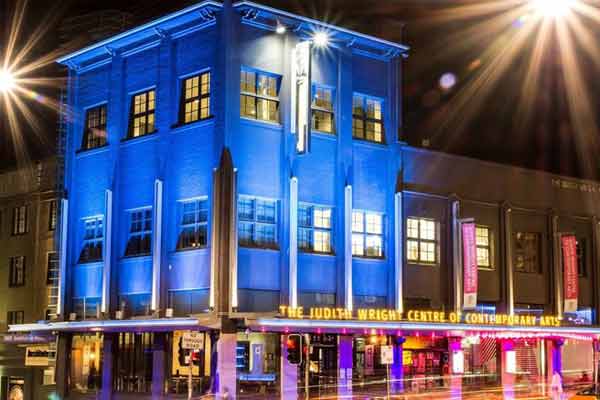In the past, it’s been hard to talk up poetry festivals. Poetry has a bit of a bad rep. For many, it’s that traumatic or tedious subject at school, filled with brooding white men unable to get a date, or waffling on about love and beauty like they’ve never seen a woman before.
But dig beneath that high school curriculum veneer and you find a wealth of voices sharing stories and ideas in new and staggeringly compelling ways.
The world is full of poetry festivals, but for the once-in-a-lifetime, not-to-be-missed type of event, you actually don’t need to look further than Fortitude Valley in August. The Queensland Poetry Festival, or QPF, is building a reputation as a global phenomenon – a yearly creation and reinvention of community that must be seen to be believed.
According to Co-Directors Annie Te Whiu and David Stavanger, collaboration and inclusivity are cornerstones of the festival’s philosophy. It’s not enough to simply talk about inclusivity, QPF aims to bring it to every corner of the festival. And with this year’s theme, ‘Distant Voices’, Annie aims to move mountains. “What we’re doing is bringing voices from the distance closer to home,” she says.
To do this means stepping away from the typical performers and searching for voices we don’t often hear on the festival circuit, including members of ‘Words On The Street’, an offshoot of Brisbane’s ‘School of Hard Knocks’.
This year sees an impressive line-up of performers from around the world and the Co-Directors can’t wait to share them with audiences. “We’re bringing together artists like Joy Harjo, Ali Cobby Eckermann, Courtney Sinna Meredith, Sachem Parkin-Owens – an incredible Quandamooka man and an incredible hip-hop artist!”
With poetry’s musical elements, it’s unsurprising that QPF has collaborated with ‘A Rock And Roll Writers Festival’ for a look at music, memoir and the poetry of storytelling.
Brisbane is getting a reputation for festivals that open space for important, sometimes uncomfortable conversations and QPF leads the charge. ‘Distant Voices’ brings together a range of global voices – and some stellar local Indigenous talent like Ellen Van Neerven and Samuel Wagan Watson – in a showcase of art and conversation around culture, voicelessness and social awareness in the age of social media and apathy.
For the first time ever, most sessions will be free. “We have 137 artists coming, and we have 85 sessions, 74 of which are free.” The point is simple, according to Annie. “Come, grab a seat, find your home, find your place, find your poet.” Like music, it’s dangerously easy to fall for poetry’s charms.
With each year the festival evolves and this year promises to be bigger and better than ever. “It’s a magnetic festival. The Judith Wright Centre has incredible spaces that really allow us to do diverse things – we're doing art installations for the first time this year, we’ve got a visual art programme running, we’re utilising the IMA forecourt… There’s plenty of chances to find your place!”
QPF runs from 24-27 August at the Judith Wright Centre, with satellite events throughout Brisbane and Ipswich.

